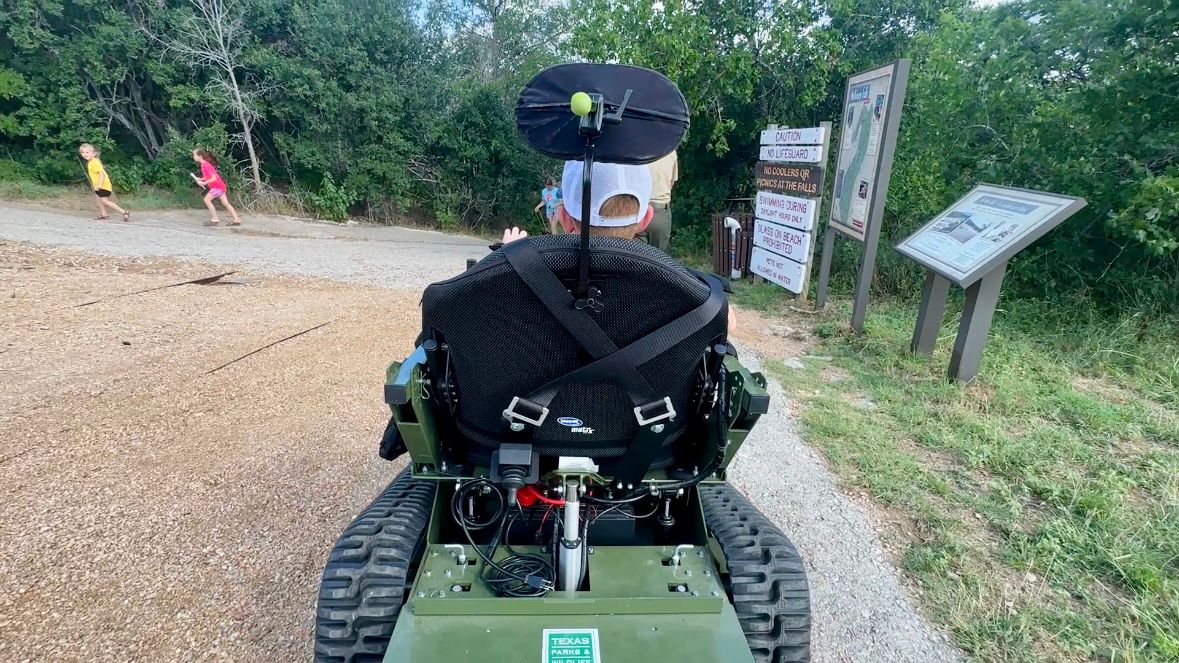ALLEN, Texas — Texas hospitals have a strong reputation when it comes to stroke care, and that’s why a lawmaker from Kenya made the long trip to the Lone Star State when he was up against his own life-threatening medical emergency.
“One morning I woke up…and I said what is wrong?” said Abraham Kirwa, a member of the Kenyan Parliament.
Last fall, Kirwa was getting ready for a radio interview in his country when his vision began to blur, one side of his body began to get numb and he found he couldn’t even keep water down. He said it was a struggle at first to get nearby doctors to look deeper into what was happening, but when they did, it was discovered Kirwa was in bad shape.
“Two strokes and massive heart attack. I was supposed to die,” he said.
Kirwa spent two weeks in a Kenyan ICU. He said he was then airlifted to Dubai to get him on the path to recovery, but his wife discovered his condition just kept deteriorating.
“She asked them, ‘I need to move him out because if I leave him here, he’s going to die,’” said Kirwa.
So, the couple traveled to North Texas, where Kirwa went to school and where their family has kept a home in Allen for years. It was just up the street at Texas Health Allen that the diplomat’s condition was not only stabilized, but he began rehabbing from his stroke with physical therapist Bryan Anderson.
Anderson, who is a stroke rehab specialist, said he was able to create a recovery plan catered to Kirwa’s unique needs, both as a patient and as a politician in a different country. Slowly but surely, he said Kirwa’s condition started to turn around, and he started regaining use of his right-side and his voice.
In the growing field of stroke rehab, Anderson said it has become a combination of a physical and mental approach to undo the damage of that life-changing emergency.
“They physically can do it. They just need to get their brain to wake up and jump on board with the process,” said Anderson.
Experts throughout Texas have been at the forefront of the growth of stroke rehab and stroke care. Several hospitals, including Texas Health, UT Southwestern and Memorial Hermann-Texas Medical Center, have even earned comprehensive stroke center certification for their work in helping patients not just survive strokes but recover from them as well.
“What’s really important is to build not only physical strength, but we gotta build the confidence in themselves,” said Anderson.
It’s worked for Kirwa who now, more than half a year after his stroke, is almost ready to return home to Kenya to serve his people again, and he said his experience will play a big part in that service moving forward.
Kirwa said he hopes to bring what he’s learned in Texas’ health care system back to his home country, where he says the health care system isn’t as comprehensive or strong. However, he said he also plans to start on a smaller scale: simply trying to get his fellow men to get more proactive in their health care and in preventing problems instead of simply reacting to them.
“I’m telling my fellow man: do what the doctor says,” said Kirwa. “Exercise…take that medicine…it will give you more days to live.”
Meanwhile, even once Kirwa’s back home, Anderson said he’ll check in regularly to see that the lawmaker’s recovery continues as well.
“As a political figure, he’s got a lot of people that rely on him to do a lot of great things, but that doesn’t mean he gets to slack off and be lazy, ya know?” said Anderson as Kirwa laughed.












